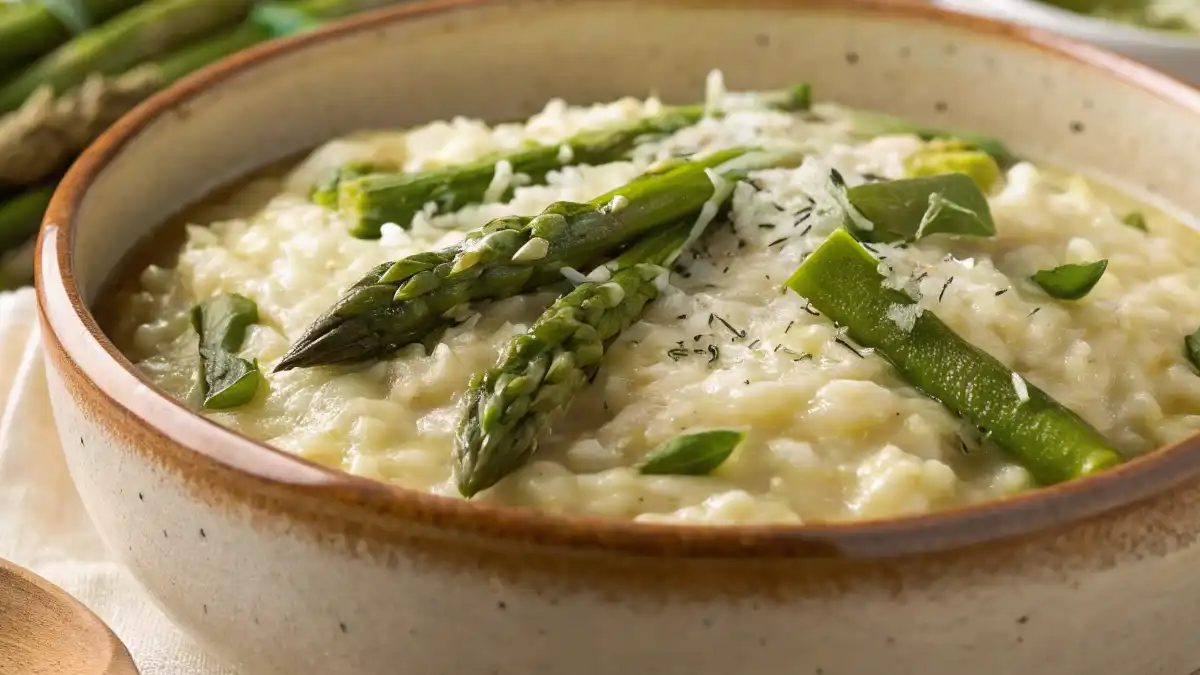
Table of Contents
Introduction: Embracing Spring’s Finest Flavor
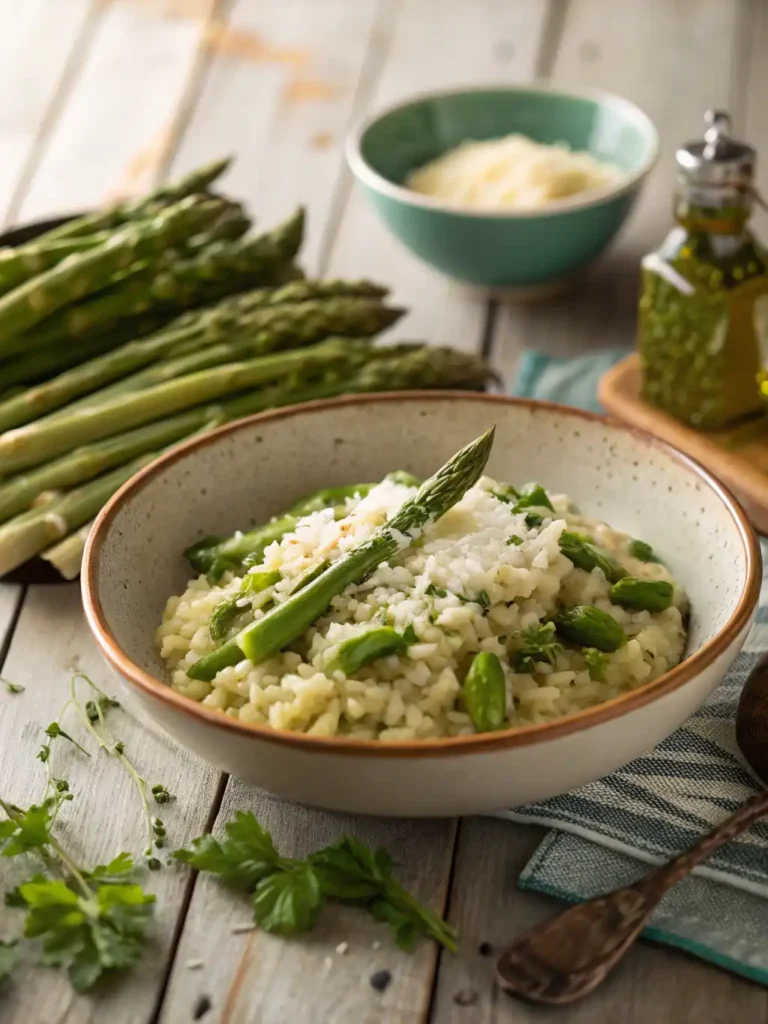
As the first tender shoots of asparagus emerge from the earth, signaling the arrival of spring, there’s no better way to celebrate the season than with a creamy, luxurious asparagus risotto. This dish isn’t just a meal—it’s a culinary experience that captures the essence of spring on a single plate. Whether you’re a seasoned home cook or a kitchen novice, this comprehensive guide will transform your approach to making the perfect asparagus risotto.
What is Risotto? Understanding the Basics
Risotto is a traditional Italian rice dish that’s far more than just a simple side. Unlike ordinary steamed rice, risotto is a creamy, luxurious preparation that requires patience, technique, and love. The magic lies in the slow cooking process, where rice is gradually coaxed into releasing its starches, creating a creamy texture that’s both comforting and sophisticated.
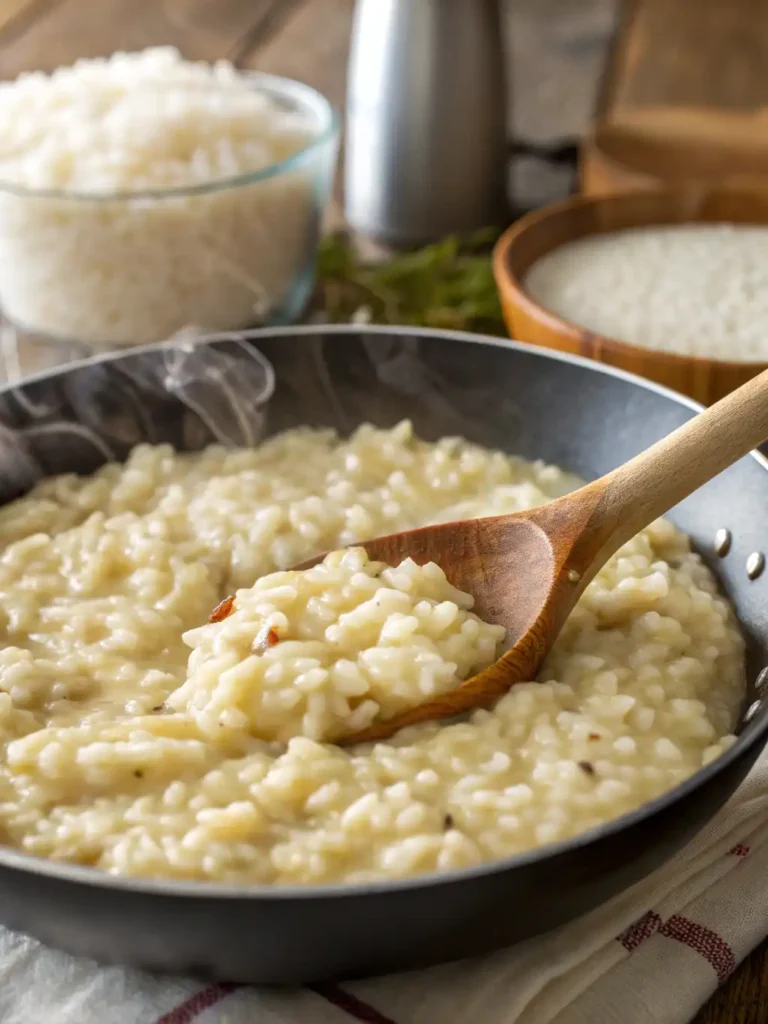
Key Characteristics of Authentic Risotto:
- Slow-cooked to perfection
- Creamy consistency
- Uses specific high-starch rice varieties
- Requires constant attention and stirring
Why Asparagus Works So Well in Risotto
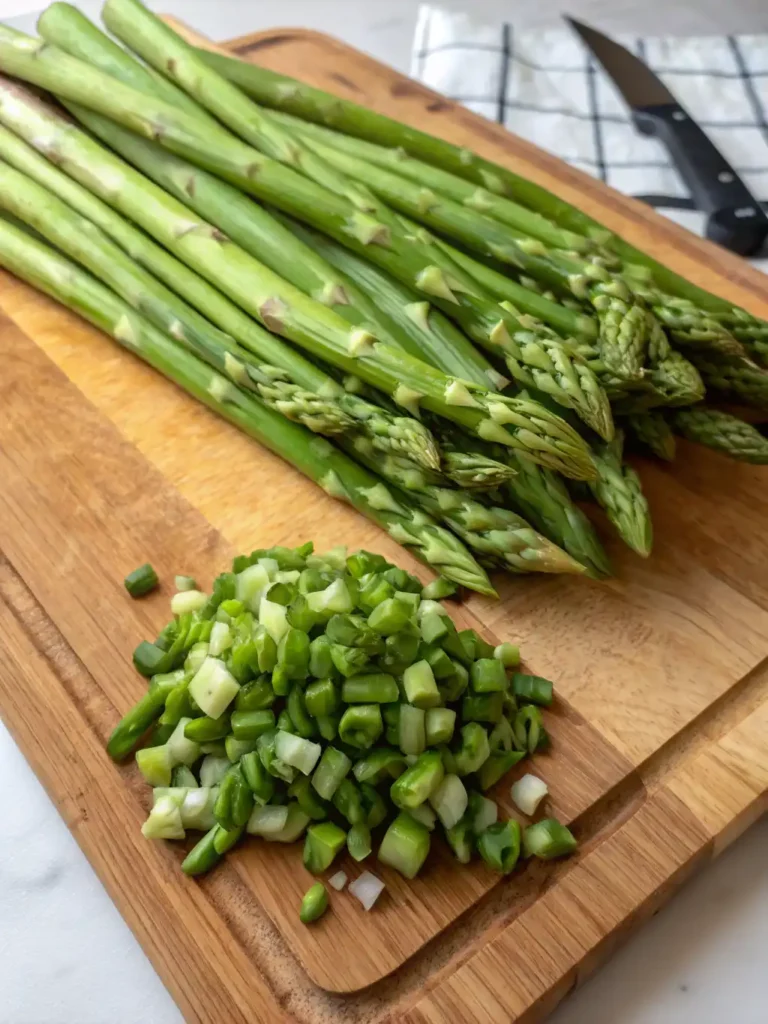
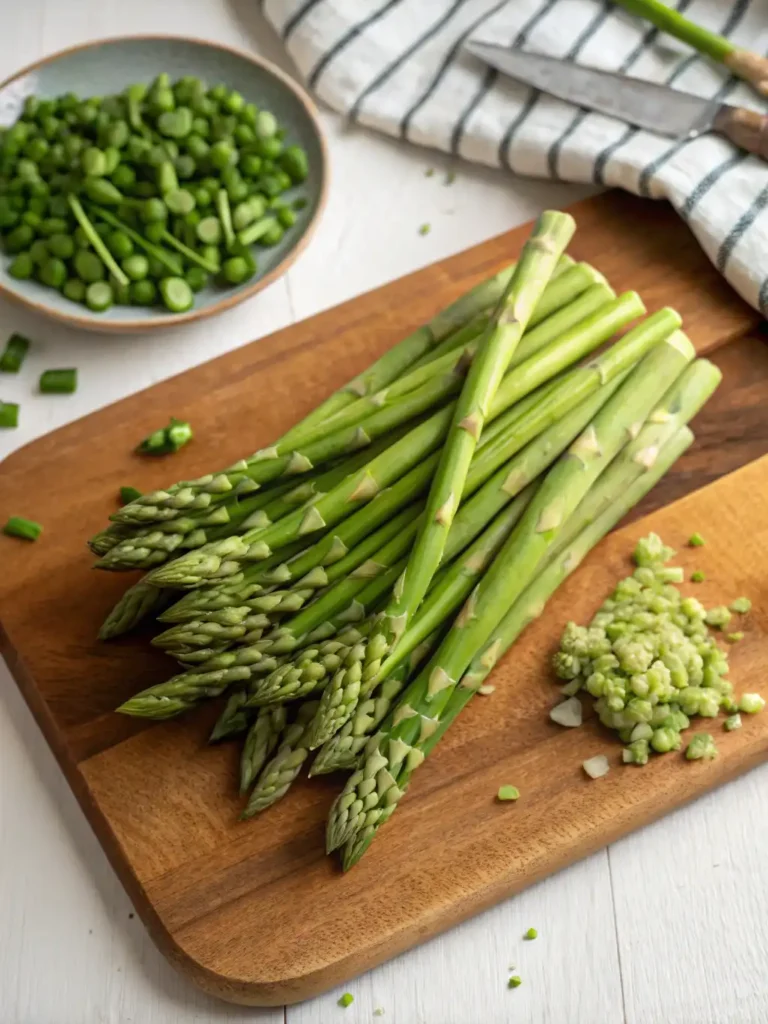
Asparagus and risotto are a match made in culinary heaven. The delicate, slightly grassy flavor of fresh spring asparagus provides a perfect complement to the rich, creamy risotto base. Each bite offers a harmonious blend of textures and tastes—the tender-crisp asparagus contrasting beautifully with the smooth, velvety rice.
Flavor Profile Highlights:
- Subtle earthiness of asparagus
- Creamy, rich risotto base
- Bright, fresh spring notes
- Potential for multiple flavor variations
Ingredients Breakdown: Selecting the Perfect Components
Essential Ingredients for Asparagus Risotto
| Ingredient | Recommended Type | Why It Matters |
|---|---|---|
| Rice | Arborio or Carnaroli | High starch content ensures creamy texture |
| Asparagus | Fresh, thin-stalked | Tender, sweet, maximum flavor |
| Broth | Vegetable or Chicken | Adds depth and complexity |
| Butter | High-quality unsalted | Creates richness and smooth finish |
| Parmesan | Aged, freshly grated | Adds umami and depth |
Selecting the Perfect Asparagus
- Look for bright green, firm stalks
- Choose thin, uniform spears
- Check for tight, compact tips
- Avoid limp or yellowing asparagus
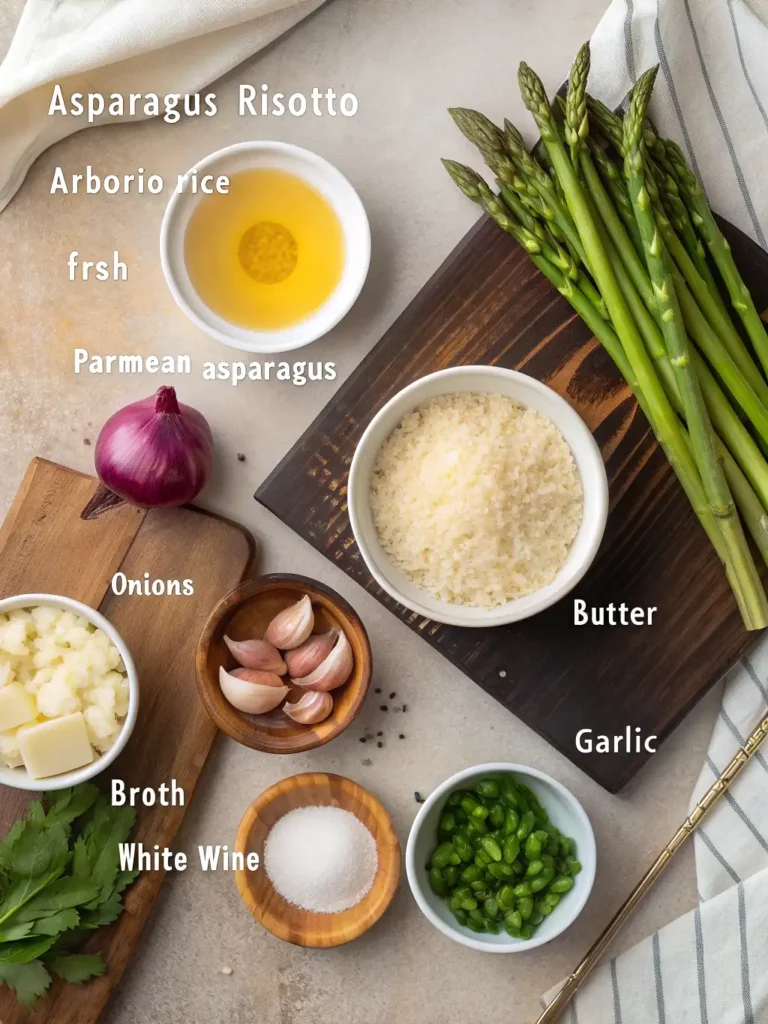
Ingredient Substitutions
Dietary Variations:
- Vegan Asparagus Risotto:
- Replace butter with olive oil
- Use nutritional yeast instead of Parmesan
- Choose vegetable broth
- Gluten-Free Option:
- Ensure broth is gluten-free
- No modifications needed for rice
Equipment Needed: Your Risotto Toolkit
Essential Equipment:
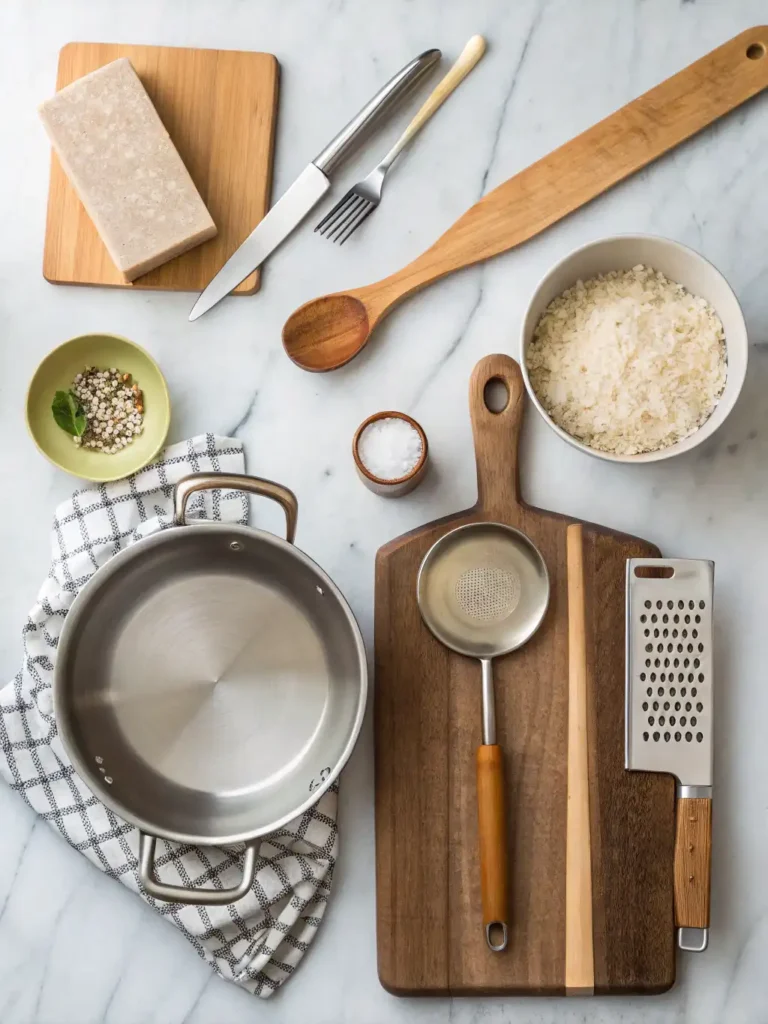
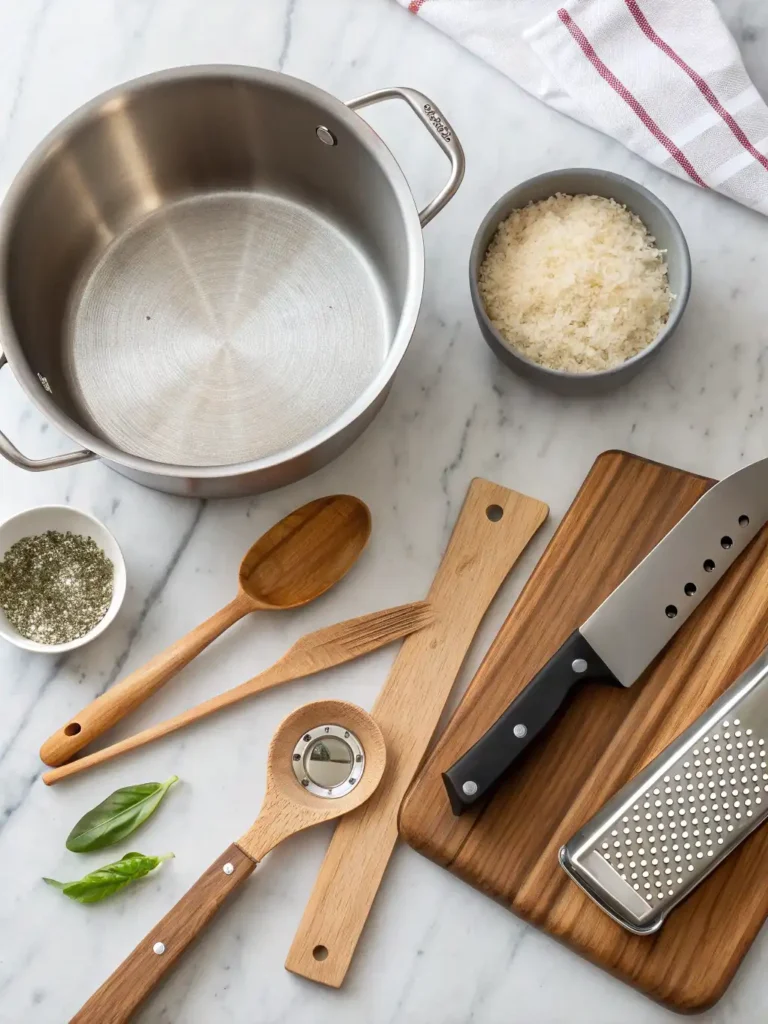
- Large, heavy-bottomed saucepan
- Wooden spoon or silicon spatula
- Ladle
- Sharp chef’s knife
- Cutting board
- Grater for Parmesan
Step-by-Step Instructions: Crafting the Perfect Asparagus Risotto
Preparation Steps
- Prep Asparagus
- Wash thoroughly
- Trim woody ends
- Cut into 1-inch pieces
- Separate tips for garnish
- Mise en Place
- Chop onions finely
- Measure rice
- Warm broth
- Grate Parmesan
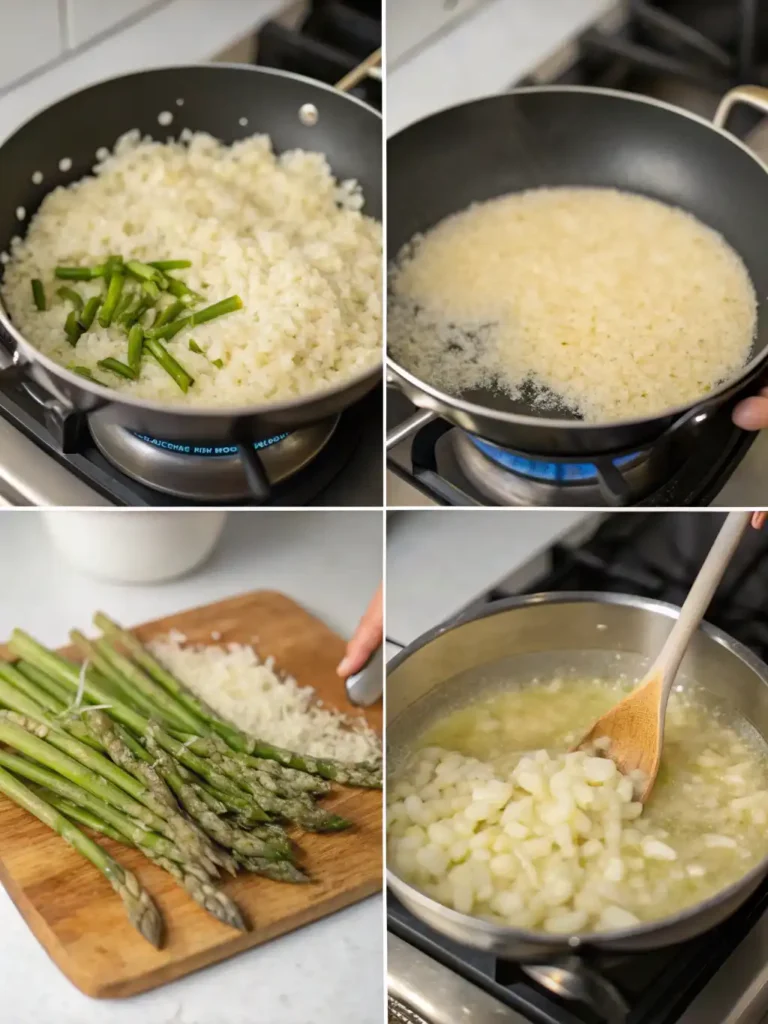
Cooking Process
- Sauté onions in butter until translucent
- Toast rice until slightly transparent
- Add white wine (optional)
- Begin adding warm broth, one ladle at a time
- Stir continuously
- Add asparagus midway through cooking
- Finish with butter and Parmesan
Pro Tips for Perfect Risotto
Consistency Secrets
- Too Thick: Add more warm broth
- Too Thin: Continue cooking, stirring constantly
- Ideal Texture: Creamy, slight resistance when biting (al dente)
Flavor Enhancement Techniques
- Toast rice to enhance nuttiness
- Use high-quality, warm broth
- Add a splash of lemon zest
- Finish with fresh herbs
Variations to Explore
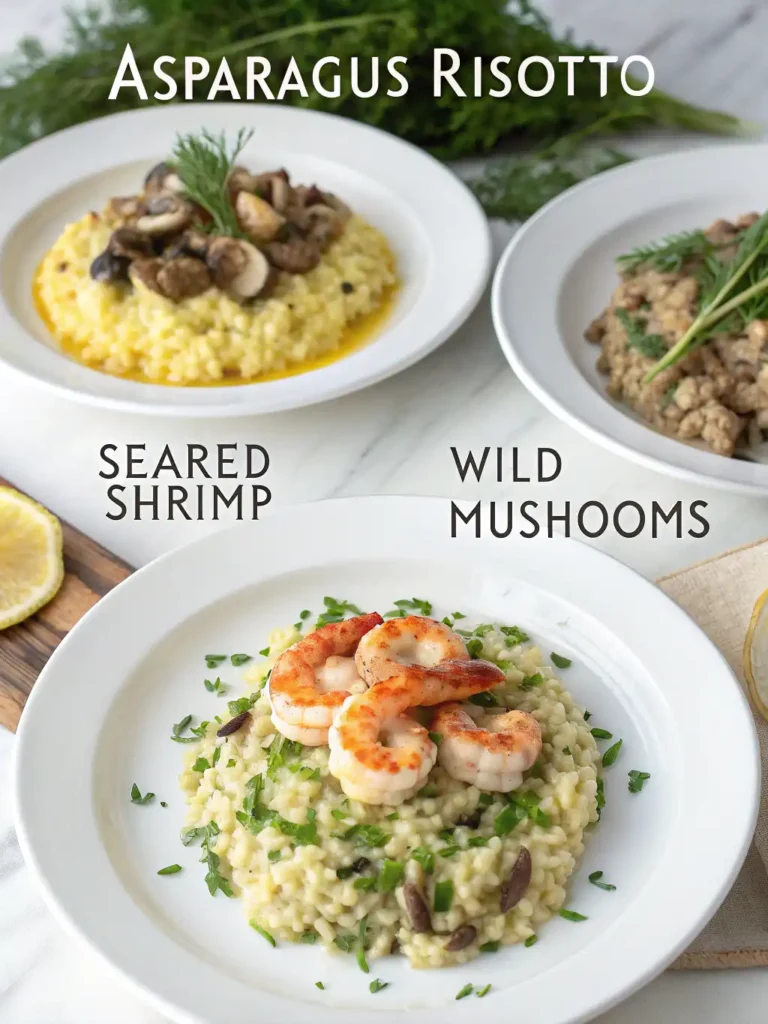
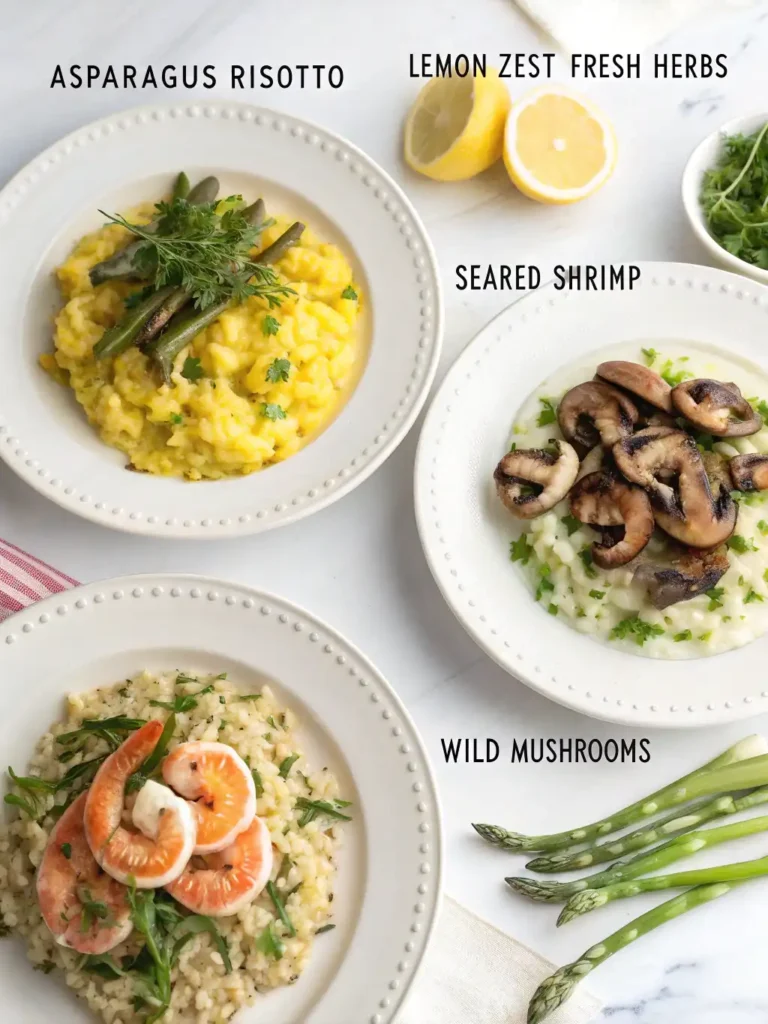
- Lemon Asparagus Risotto
- Add lemon zest
- Finish with fresh lemon juice
- Seafood Asparagus Risotto
- Add sautéed shrimp or scallops
- Use fish stock
- Herb-Infused Asparagus Risotto
- Mix in fresh basil, thyme, or tarragon
- Garnish with microgreens
Serving Suggestions
Perfect Pairings
- Wines:
- Crisp white wines (Sauvignon Blanc, Pinot Grigio)
- Light, unoaked Chardonnay
- Side Dishes:
- Light salad
- Grilled chicken
- Roasted vegetables
Storage and Reheating
Best Practices
- Refrigerate within 2 hours
- Store in airtight container
- Consume within 2-3 days
Reheating Tips
- Add splash of broth
- Reheat slowly on stovetop
- Stir frequently to restore creamy texture
Nutritional Information
Asparagus Risotto (Per Serving)
- Calories: Approximately 350-400
- Protein: 8-10g
- Carbohydrates: 45-50g
- Fat: 15-20g
Troubleshooting Common Risotto Challenges
| Problem | Solution |
|---|---|
| Mushy Rice | Less cooking time, use firmer rice variety |
| Dry Risotto | Add more warm broth, stir continuously |
| Undercooked Rice | Continue cooking, add broth gradually |
Call to Action
Have you tried making asparagus risotto? We’d love to hear about your culinary adventures! Share your experience in the comments, rate the recipe, and don’t forget to spread the love on social media.
Happy Cooking!
Conclusion: Savor the Essence of Spring with Asparagus Risotto
Asparagus risotto is more than just a dish—it’s a celebration of spring’s freshest flavors, a testament to the beauty of Italian cooking, and a comforting yet elegant meal that anyone can master. With its creamy texture, delicate asparagus notes, and endless variations, this risotto is perfect for both weeknight dinners and special occasions.
By following the step-by-step instructions, selecting high-quality ingredients, and applying expert tips, you can create a restaurant-worthy asparagus risotto right in your own kitchen. Whether you prefer a classic version, a zesty lemon twist, or a seafood-infused delight, this dish is sure to impress.
Now it’s your turn! Try making asparagus risotto and share your experience in the comments. Don’t forget to save this recipe, share it with fellow food lovers, and enjoy every creamy, flavorful bite. Happy cooking!
FAQs
When should you add asparagus to risotto?
Add asparagus about halfway through the cooking process, typically after 10–12 minutes, to ensure it stays tender yet slightly crisp. You can also blanch the asparagus separately and stir it in at the end for extra freshness.
Should risotto spread?
Yes, properly cooked risotto should spread slightly when plated but still hold a creamy consistency. It shouldn’t be too thick or sticky—aim for a velvety texture that flows gently on the plate.
What herbs are good in asparagus risotto?
Fresh herbs like basil, thyme, parsley, chives, and tarragon complement the delicate flavor of asparagus risotto. A sprinkle of fresh herbs at the end enhances both aroma and taste.
What is the secret to the best risotto?
The key to the best risotto is patience and technique—use high-starch rice (Arborio or Carnaroli), add warm broth gradually, stir constantly, and finish with butter and Parmesan for a silky texture.